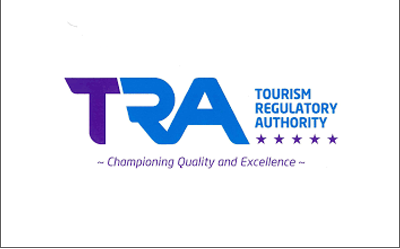KENYA CLASSIC TOUR TRAVEL is renowned for deep sea fishing and has also recently pioneered humpback whale watching excursions during the months of June – September. The migration of the majestic humpbacks along the coast of East Africa is truly something to behold.
As host of the ILTTA World Championships, many ESPN, DSTV and SKY televised events and numerous other Tournaments annually, Kenya Classic Tour Travel in Watamu is a focal point of fishing off the East African Coast.
The waters off Watamu offer hugely diverse fishing opportunities and it is one of very few places where three types of Marlin, Sailfish, Broadbill Swordfish and Short bill Spearfish are all available. With a series of underwater mountains easily accessible offshore, bait and the predators are concentrated unlike the situation in the open Ocean. Kenya Classic Tour Travel in Watamu was the pioneer of the practice of ‘tag and release’ of billfish on the Kenyan coast. We continue to wholeheartedly recommend this to guests and award certificates to anglers in recognition of their catch.
The Experience
Fishing charters are 10 hour full day excursions or 6 hour half days, depending on your preference and normally kick off just after sun rise when conditions are calm and often best for an early catch. Our experienced crews are happy to work with beginners and help them through each step on the fishing learning curve or just sit back and watch a master at work in the chair on a big fish. Children interested in fishing are very welcome too.
All conventional tackle is provided (although those fishing on fly should bring their own kit) along with delicious fresh packed lunches from our kitchen and drinks.
Our Boats
All Kenya Classic Tour Travel deep water fishing craft are twin engine and in touch with each other and the shore by radio link. Each boat carries life saving and fire fighting equipment on board and bigger boats are equipped with a head.
We have 3 categories of boats:
- >35 foot sport fishing boats designed to take up to 4 guests. These boats usually run with a crew of 3. This is definitely the most comfortable way to fish with plenty of room to sit or lie down and relax whilst waiting for the action to happen.
- 31 foot twin outboard craft for up to 2 guests with 2 crew. Being smaller boats, you are right where it’s all happening – a lot of fun for those who want to be involved in everything.
- 56 foot larger boat which can take up to 6 guests.
The Season
Fishing starts each season in July with the first two months being windy with the South East trade winds (Kusi) blowing but the fishing is very rewarding for those happy to be out there in what can be quite rough conditions. September brings calmer seas and October heralds the arrival of the main Billfish run from November to early April but sailfish and black marlin often come inshore in numbers in August. The shores of Kenya are almost as good as anywhere in the world for sailfish; four to six to the boat is quite normal with our record at twenty three in one day – all tagged and released. A big blue marlin is an absolute privilege to see and they are usually found in deep water following tuna shoals. Some very big blue marlin can be expected mid February to mid March. The main season for black marlin is December to mid March although we do see medium sized ‘Blacks’ in August/September often in very shallow water. Catching broadbill is an overnight specialty – you drift at night, with squid weighted to different depths and light sticks on the leader – an experience not to be missed.
The fishing rates using a big boat (35-38 footer) for the low season (July-October) are Half Day $650 and full-day $1050. For the High season (Jan -April/Nov-Dec) Half-day $750. Full day rates are $1050. We also have a 56 foot larger boat whose rates are Half day $900 Full-day $1500 for All seasons.
The prices include; selected packed lunches, soft drinks, bottled mineral water and beer, fuel, all tackle and bait.
Whale Watching
Humpback whales are the most majestic animals in the ocean, and are seen annually passing through the Watamu National Marine Protected Area on the Kenyan Coast.
Ask any tourist to name the Big Five of Kenya, and they will no doubt give you the usual list of land animals. Although visitors to Kenya are aware of Kenya’s beautiful beaches, coral reefs, fishes and sea turtles, not many know that 10 different species of dolphins and whale have been identified in Watamu, which could easily be included in the “Marine Big Five”.
Each year whales are first sighted along the coast of East Africa in early June as they make their annual migration north from Antarctica. Whales travel to warm tropical inner reefs during both breeding and birthing. Newly born calves typically remain with the mothers for about two years, until weaned. The return journey is made in October, swimming over 4,000km to the cold, food-rich seas of Antarctica, their main feeding area for sardines or krill. These magnificent marine mammals can reach a length of 15 metres and weigh around 30 tonnes (about six times the weight of an elephant). Watching them in their natural environment leaping out of the water, sometimes in pairs, or larger family groups, is an unforgettable sight. They can sometimes even be seen from land in Watamu, as you sip a cold beer facing the marine park.
Dolphin Watching
Watamu is a haven, a natural sanctuary for families of dolphins including mothers and calves. Protected by Kenya Wildlife Service, the Malindi Watamu National Marine Park and Reserve and its protected lagoons and islands are the perfect way to watch our dolphins playing, feeding or having a party! Although they stay in Watamu all year round, dolphins are best seen from November to April when the waters are calmest. Take a morning to view Indo Pacific bottlenose dolphins, and Indian Ocean humpback dolphins in the wild, naturally.
Watamu Marine Excursions are the established dolphin watching tour guides with over 20 years’ experience. They will provide an informed experience, compliant with dolphin watching guidelines. Check out the Do’s and Don’ts to help you and the dolphins have the best experience. Guests are encouraged to stay in the boat for your and the dolphins’ safety, and reminded that Watamu dolphins are wild animals and very protective of their young.






